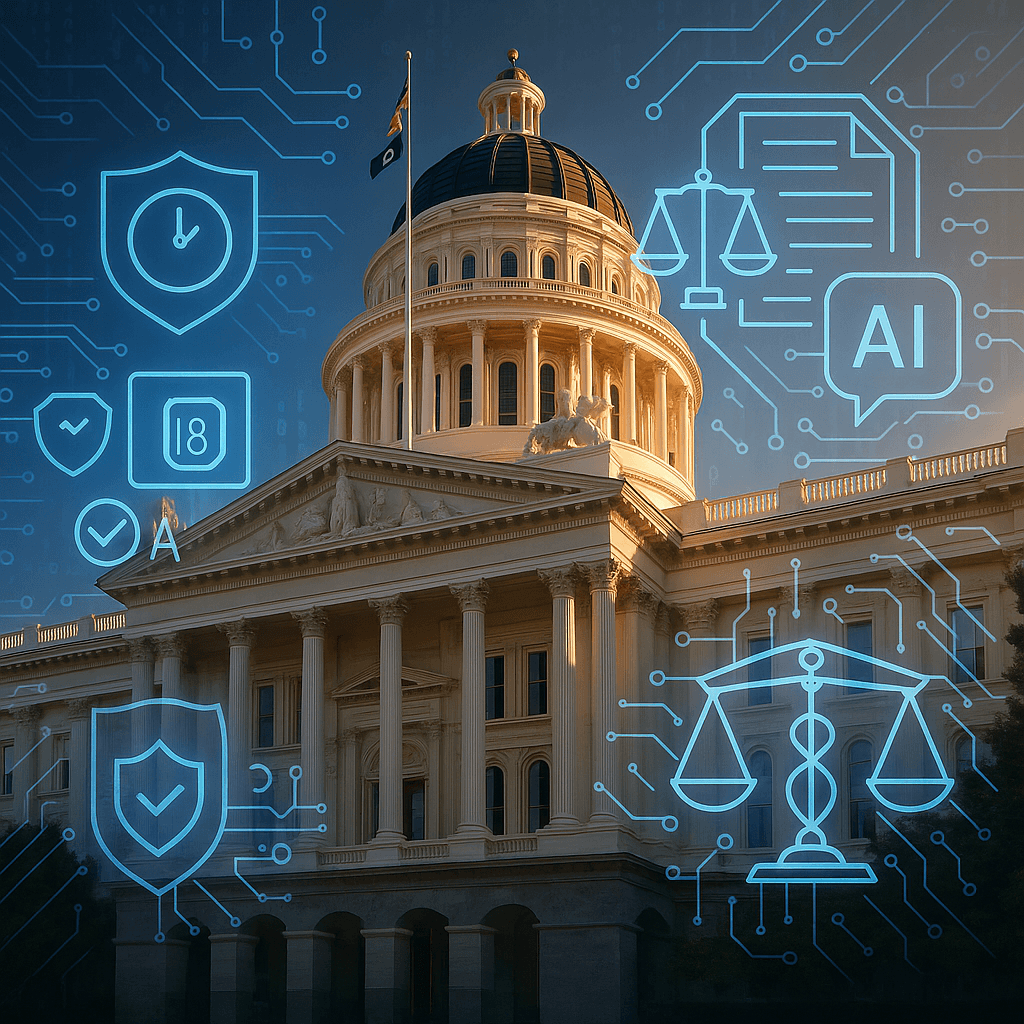California just fired the opening shot in the battle over AI regulation. Gov. Gavin Newsom signed sweeping legislation Monday that forces chatbot makers to disclose they're AI, implement mandatory breaks for minors, and requires tech giants to verify user ages - marking the first state law of its kind with massive implications for how Americans interact with AI.
California just became the first state to regulate AI chatbots directly, and the ripple effects are already hitting Silicon Valley. Gov. Gavin Newsom signed four major bills Monday that fundamentally reshape how tech companies can deploy AI and social media platforms to minors - a move that could force national changes in how Americans interact with artificial intelligence.
The centerpiece legislation, SB 243, breaks new ground by requiring AI chatbots to explicitly disclose they're artificial intelligence and force minors to take mandatory breaks every three hours. It's the first state law of its kind, and it puts companies like OpenAI, Google, and Meta on notice that the era of unregulated AI deployment is ending.
"We can continue to lead in AI and technology, but we must do it responsibly - protecting our children every step of the way," Newsom said in his announcement. "Our children's safety is not for sale."
The timing couldn't be more critical. A recent survey from Fractl Agents found that one in six Americans now rely on chatbots for emotional support, with more than 20% reporting genuine emotional connections to their AI companions. As these relationships deepen, lawmakers are scrambling to prevent potentially harmful outcomes.
OpenAI was quick to embrace the new rules, calling them "a meaningful move forward" for AI safety standards. "By setting clear guardrails, California is helping shape a more responsible approach to AI development and deployment across the country," the company told CNBC.
But the legislation goes far beyond chatbots. AB 1043 forces device makers like Apple and Google to implement age verification tools in their app stores - a move that both companies have already endorsed. Kareem Ghanem, Google's senior director of government affairs, called it one of the "most thoughtful approaches" to keeping children safe online.
The social media crackdown is equally aggressive. AB 56 requires platforms including Instagram and Snapchat to add mental health warning labels, while AB 621 heightens penalties for companies distributing deepfake pornography. These aren't minor policy tweaks - they're fundamental changes to business models that have operated unchecked for years.












